Dolbadarn Castle | Visit Amazing Welsh Castles
Dolbadarn Castle stands near the village of Llanberis in Gwynedd, North Wales. It overlooks the waters of Llyn Padarn. The castle dates from the early 13th century and remains an important site for Welsh heritage.
It is well-known for its tall round tower, built by the Welsh prince Llywelyn the Great.
It is a good example of native Welsh castle building before the English conquest. The castle offers views of Snowdonia National Park and remains a popular stop for history enthusiasts and walkers.
Quick Facts
Location: Llanberis, Gwynedd, North Wales
Type: Welsh stone keep castle
Built: Early 13th century
Founder: Llywelyn the Great, Prince of Gwynedd
Current Status: Ruined but with substantial remains, especially the round tower
Entry Fee: Free
Dog Friendly: Yes, dogs are allowed on leads
Managed By: Cadw (the historic environment service of the Welsh Government)
Official Website: https://cadw.gov.wales/visit/places-to-visit/dolbadarn-castle
Brief History
The castle was built in the early 1200s by Llywelyn the Great. It served as a defensive stronghold and a symbol of his authority over Gwynedd. The castle controlled the Llanberis Pass, a key route through Snowdonia.
During the 13th century, the castle was a royal residence. It also functioned as a military base. Llywelyn's grandson, Llywelyn ap Gruffudd, used the castle during conflicts with the English crown.
In 1282, Edward I of England conquered Gwynedd. His forces seized it, stripping it of valuable materials. After this period, the castle lost importance and fell into partial ruin.
By the 18th and 19th centuries, the castle attracted interest from artists and travellers. Painters such as J.M.W. Turner visited the site, making it famous through landscape art.
Features and Layout
The castle stands on a rocky hill above Llyn Padarn. The most striking feature is the large round stone tower. It rises to 15 metres and has walls over 2 metres thick. The tower had several floors connected by wooden staircases, though these no longer survive.
The castle layout follows a simple design. It consists of a curtain wall surrounding a small courtyard. The courtyard included domestic buildings, of which only foundations remain today.
The main entrance sits on the eastern side. A rock-cut ditch and natural slopes strengthened the castle's defences. You can still see the base of the gatehouse.
One small detail visitors notice is the spiral staircase inside the round tower. The worn steps show where many feet have climbed over the centuries.
Did You Know?
Dolbadarn Castle’s round tower is one of the earliest examples of a Welsh-built stone keep, showing native resistance to Norman and later English influence.
Images
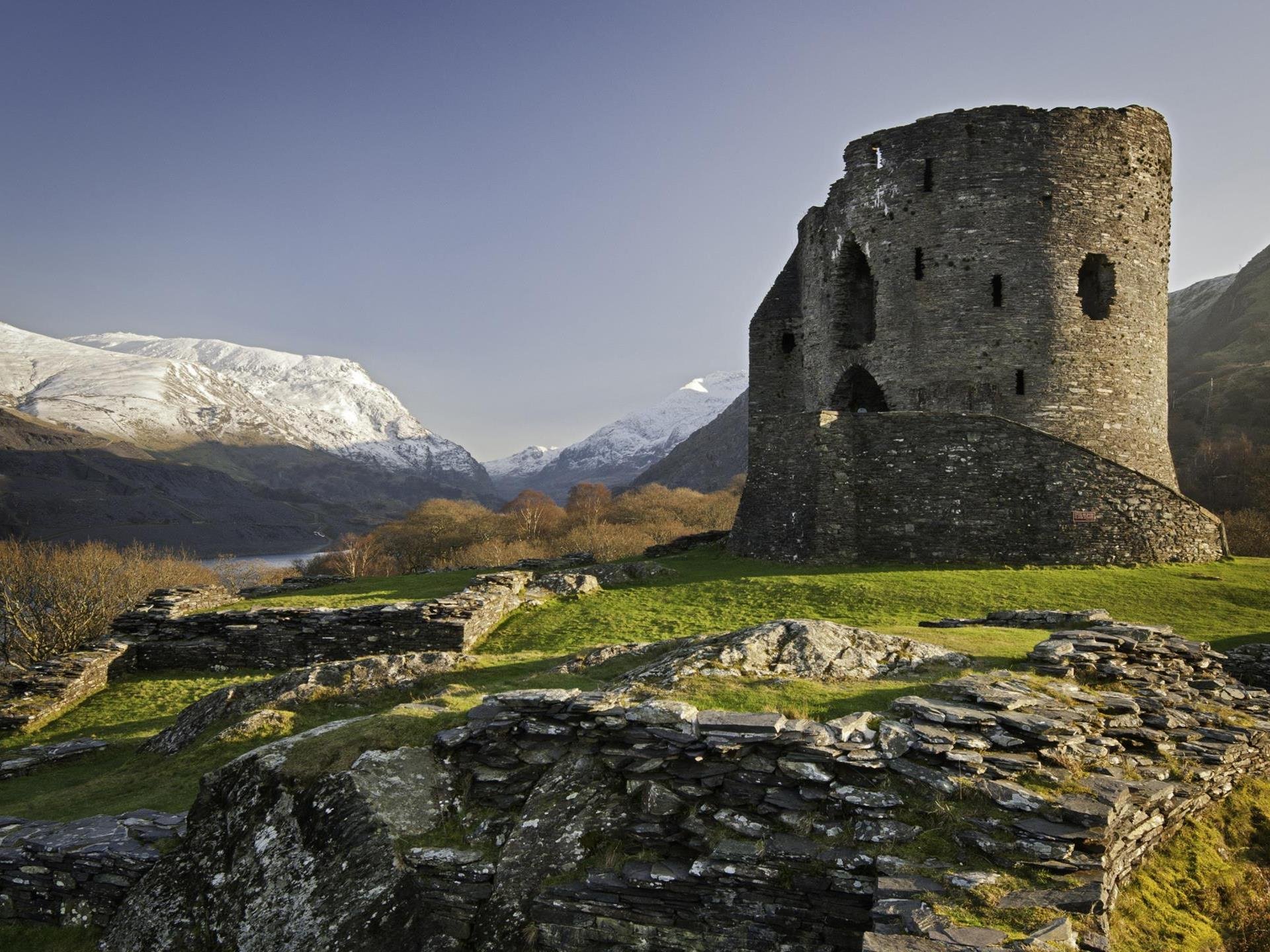
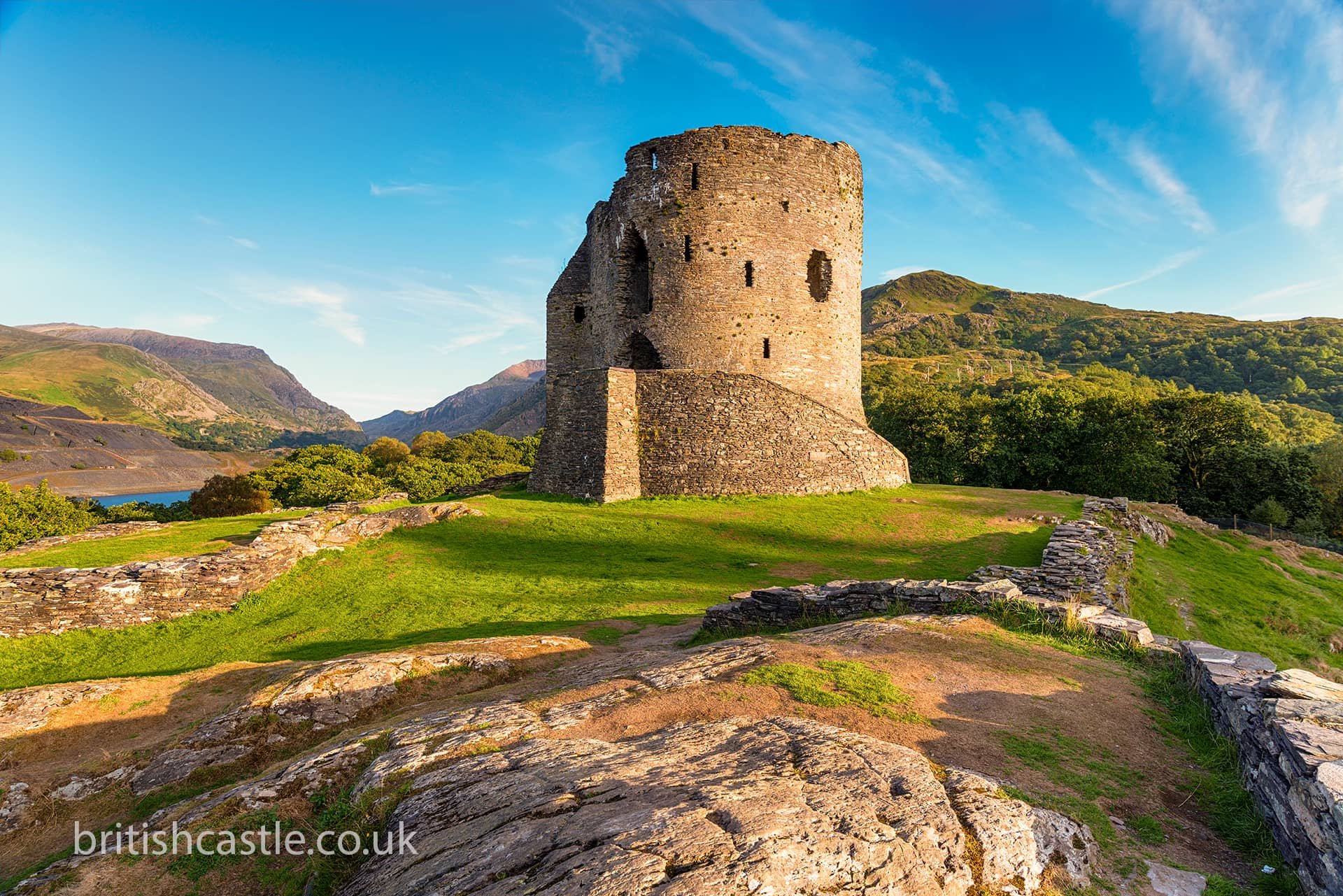
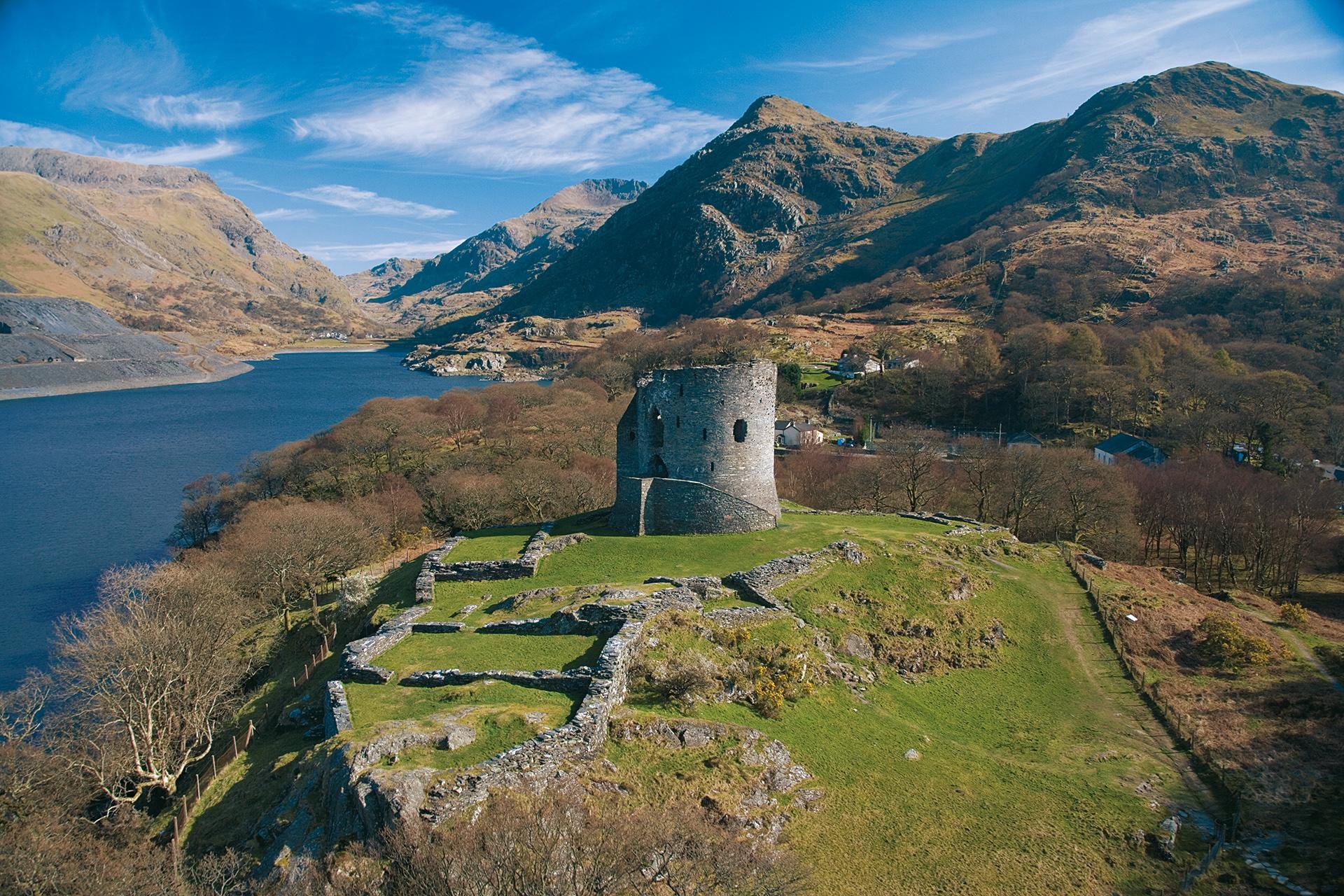
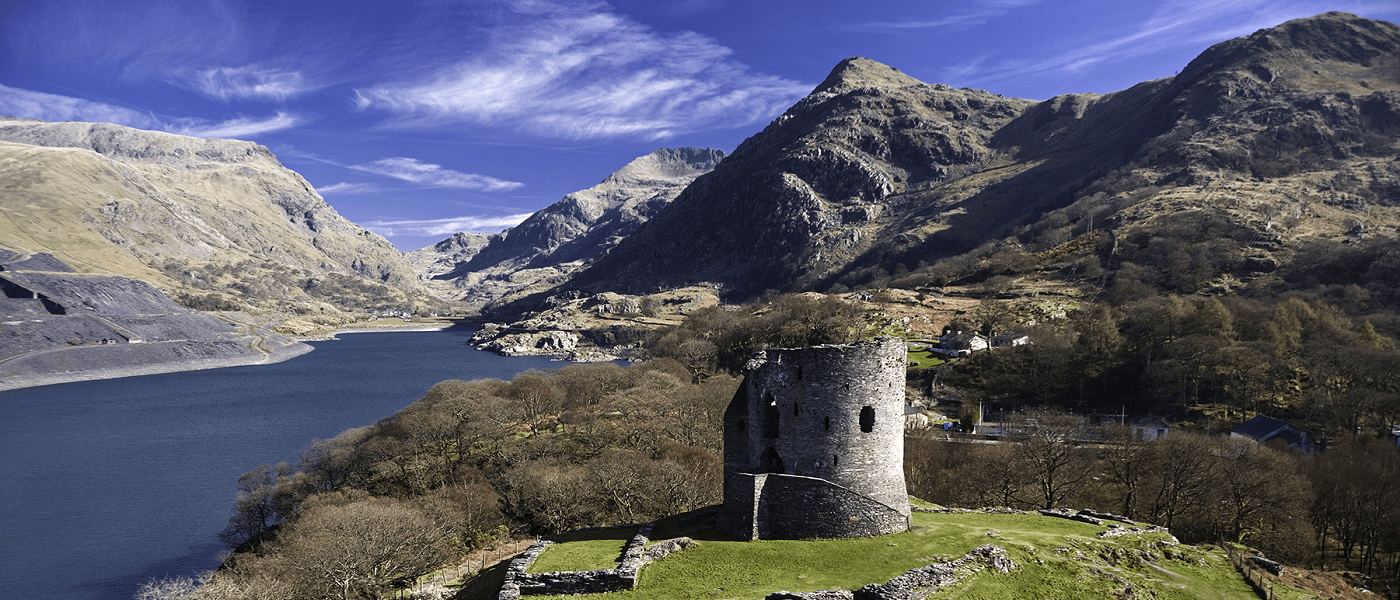
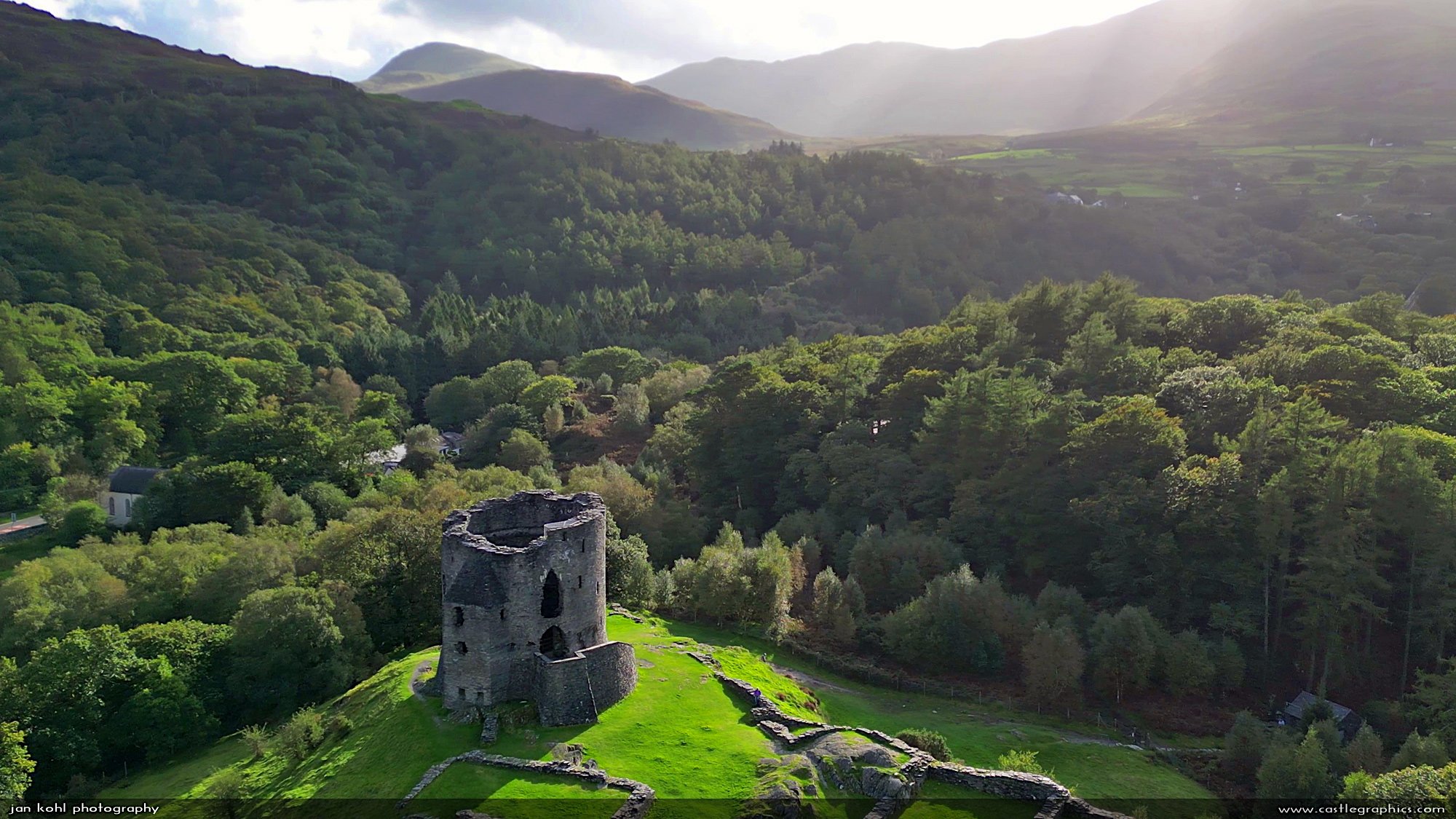
Legends and Stories
The castle features in local folklore linked to Welsh princes and medieval events. One story involves Owain Goch ap Gruffudd, a rival of Llywelyn ap Gruffudd. Historical sources like the Brut y Tywysogion (Chronicle of the Princes) state that Owain was imprisoned in the round tower for over 20 years after his defeat in 1255.
Visitors today sometimes reference this tale on review platforms such as TripAdvisor, noting the atmosphere of the tower and its connection to imprisonment tales. Some local guides recount that the castle became a symbol of betrayal among rival Welsh factions.
There are no ghost legends widely recorded, but the castle's solitary position has contributed to its reputation as a quiet and reflective site, especially on misty days according to visitor reviews.
Visiting
Here are the key visiting details sourced directly from Cadw and local guides:
Entry & Hours
Free entry, all year round during daylight hours between 1 April–31 March.
Reasonable daylight hours, typically 10 am–4 pm, with last entry 30 minutes before closing.
Closed 24, 25, 26 Dec, and 1 Jan.
Facilities & Policies
Dogs on short leads allowed on the ground floor.
No smoking .
Pay & Display car park directly across the road.
Terrain is uneven and may be muddy; moderate difficulty walk (~10–25 min) along farm tracks.
A handrail has been added at the entrance steps; surfaces can be slippery in wet conditions.
Directions
Located just off the A4086 near Llanberis; look for a footpath sign to Llyn Padarn.
Alternatively, park in Llanberis village and walk through a small wooded area, crossing the Afon Arddu to reach the site.
Visitor Experience
A short woodland walk leads to the castle gate.
Visitors report easy access to the tower via a narrow spiral staircase, some describe it as “claustrophobic.”
The site is ideal for a quick yet visually rewarding stop, especially for photographers.
Nearby Attractions
Around the site, several notable sites lie within easy reach of Llanberis village:
Snowdon Mountain Railway
Less than a mile away, this historic narrow-gauge railway climbs to the summit of Snowdon (Yr Wyddfa), offering panoramic mountain views and a scenic experience without the hike.
Llanberis Lake Railway
A heritage steam train traces a 2.5 mile route along Llyn Padarn’s shore, passing the castle and ending near Padarn Country Park.
National Slate Museum
In the former Dinorwic Quarry workshops, this free museum explores Wales’s slate heritage and connects to the railway.
Padarn Country Park
Offers lakeside walks, picnic spots, and easy access to outdoor activities.
Dinorwic Quarry (Vivian Quarry)
A short distance away; visitors can explore the dramatic quarry site, now used for climbing and scuba diving.
Centre of Llanberis Village
A hub of cafés, craft shops, and scenic lakefront paths.
These attractions form a compact and varied itinerary, ideal for a full day exploring historic, industrial, and natural highlights.
Visitor Tips
Wear sturdy footwear—paths can be muddy and uneven, especially after rain.
Visit early in the morning or late afternoon to avoid crowds from nearby attractions.
Bring a torch if you plan to climb the round tower—interior lighting is limited.
Combine with a visit to the National Slate Museum for a half-day cultural trip.
Bring water and snacks—there are no food facilities on site, but Llanberis village has cafés.
Allow at least 30 minutes for the castle visit; longer if you enjoy taking photographs.
Check weather conditions before visiting; the exposed site can be windy.
Dogs are welcome but must remain on a lead for safety.
FAQs
-
Most visitors spend between 30 minutes and 1 hour at the castle. The visit includes a short uphill walk and time to explore the tower and views.
-
Yes, visitors can access the round tower. A narrow spiral staircase leads to the top. Care is needed as the steps are uneven and can be slippery in wet weather.
-
Yes, many families visit Dolbadarn Castle. However, the site has steep paths, uneven ground, and no safety railings around high edges. Supervision is important.
-
No, there are no toilet facilities at the castle itself. Public toilets are available in Llanberis village nearby.
-
Yes, a pay-and-display car park is directly opposite the main footpath entrance. Further parking is available in Llanberis village.
Wrapping it Up
This castle provides a clear example of native Welsh castle design from the early 13th century. Its strong round tower, strategic views over Llyn Padarn, and ties to Welsh princes make it a significant historic site. The castle is free to visit and sits within a scenic area near other attractions in Llanberis. It remains accessible for short visits or as part of a wider exploration of Snowdonia.
Sources
Cadw
Official site with historical background, visiting information, access advice, and site facilities.
https://cadw.gov.wales/visit/places-to-visit/dolbadarn-castleLove Our Adventures
Visitor guide including walking routes, practical access details, and observations from a personal visit.
https://www.loveouradventures.com/post/dolbadarn-castleVisit Mid Wales
Tourism resource covering entry fees, opening times, directions, and general visitor guidance.
https://www.visitmidwales.co.uk/showmewales/things-to-do/dolbadarn-castle-cadw-p1716221Walk Snowdonia – Things to Do in Llanberis
Regional travel guide outlining nearby activities and popular attractions within Llanberis.
https://www.walksnowdonia.co.uk/post/things-to-do-in-llanberisFootsteps on the Globe – Top 10 Things to Do in Llanberis
Personal travel blog recommending key stops and local attractions in and around Llanberis.
https://www.footstepsontheglobe.com/destinations/europe/uk/wales/top-10-things-to-do-in-llanberis-wales-for-a-perfect-weekender/Wikipedia – Dinorwic Quarry
General reference for industrial heritage details on the nearby Dinorwic Quarry.
https://en.wikipedia.org/wiki/Dinorwic_quarry


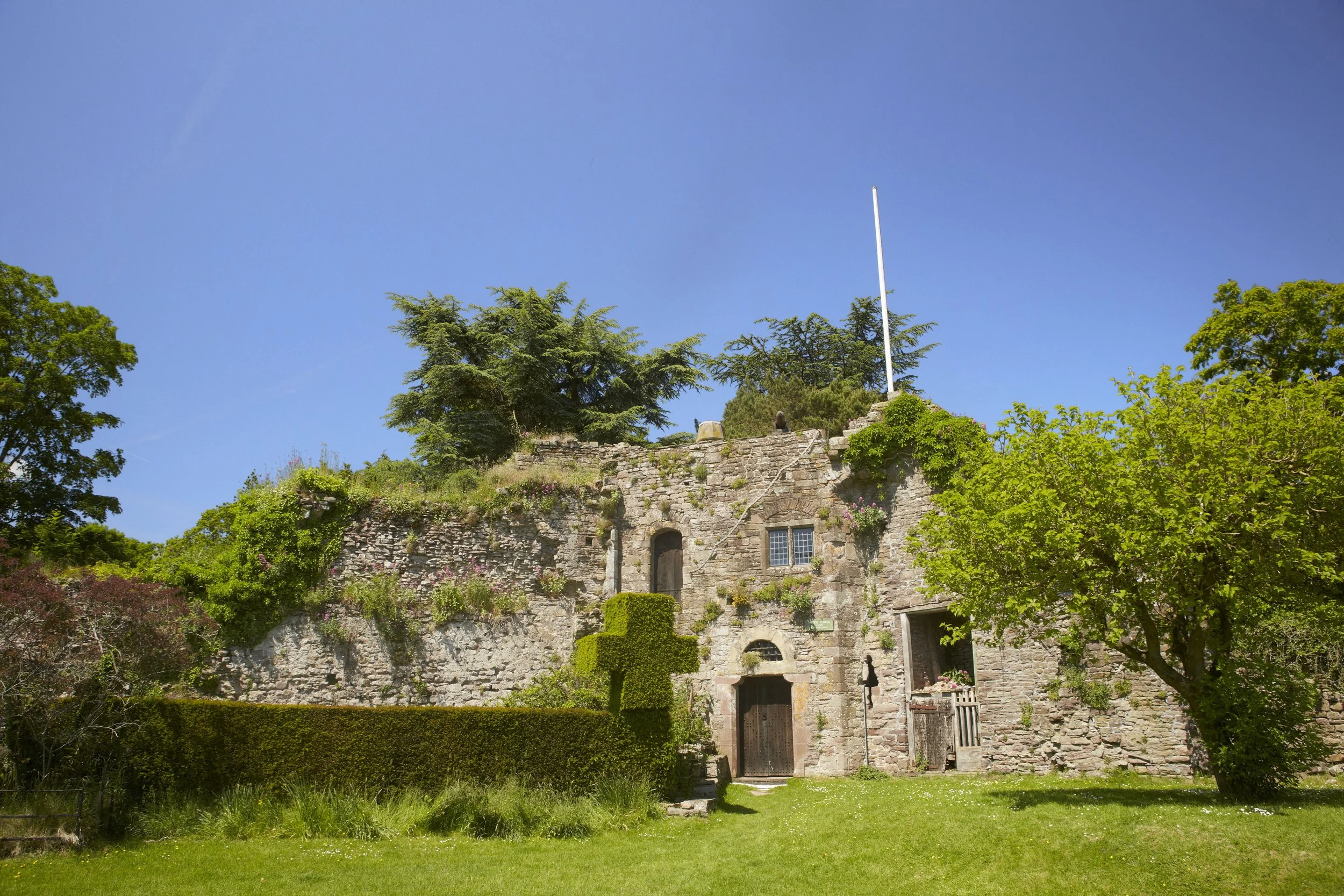
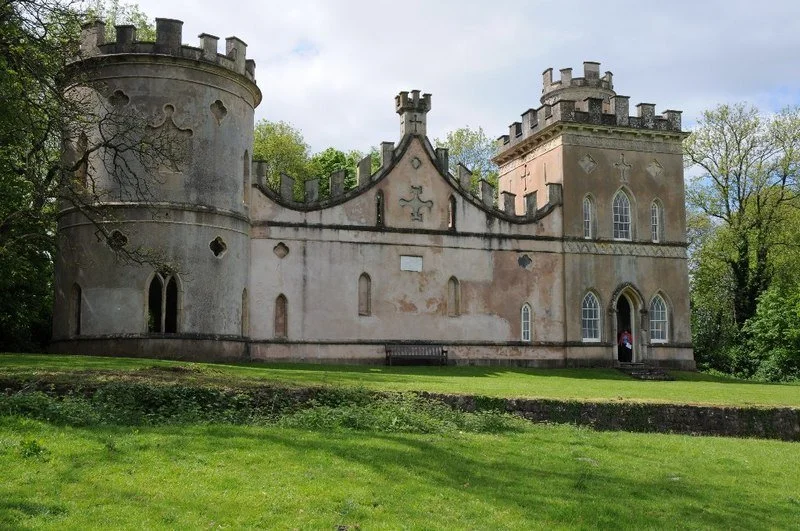
Cardiff Castle is a medieval and Victorian-era site in the centre of Cardiff, the capital of Wales.